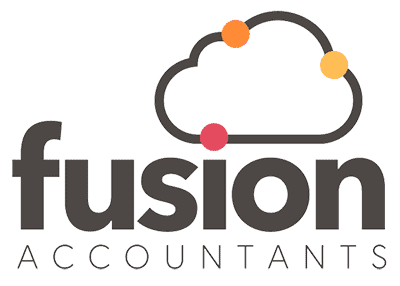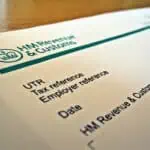What working from home expenses can I claim as a Sole Trader?
Reading Time:
You are probably one of the many sole traders that has opted to work from the comfort of their homes? It is particularly appealing to individuals trying to juggle a work-life balance if they have young children, stay-at-home parents or supporting those living with disabilities, and find that the “9-to-5” office job is quite restrictive and inflexible.
Well, if you fall into this category, are you aware of the number of expenses you can claim whilst using your home as an office? Claiming “work from home” expenses mean you will pay less tax and have the opportunity to plough any savings back into your business venture.
You might be able to claim a wide range of expenses against your tax bill for using your home as a part-time or full-time office, depending on the work you do. For example, you can either claim office equipment like furniture and computers or rent part of your home to your company, although you need to be extremely careful to include actual costs.
In this article we look at the range of expenses, and how to calculate them.
Flat rate: the most straightforward method
This is the simplest method to calculate the expenses that you can claim for being a sole trader. All you have to do is calculate the number of average hours you spend working from home in a month. Furthermore, you are supposed to add a set amount for the number of hours in your tax accounts for using the home for business.

The amount is variable to the hours spent working from home per month:
- For 25-50 hours the amount is £10/month
- For 51-100 hours the amount is £18 per/month
- For 101 hours or more the amount is £26 per/month
Example:
You worked 40 hours from home for 10 months and worked 60 hours for 2 months:
10 months x £10 = £100
2 months x £18 = £36
Total you can claim = £136
This method can save a lot of time. However, this only covers expenses for light, power, and heat.
Analysing the costs method
This is another option you could use if the basic accounting method is not eligible for your business, which is determined by the kind of business a sole trader is running and the kind of work done at home.
For instance, a freelancer real estate advisor might spend a few hours a week doing research from home but spend the remaining of the time visiting sites with clients. Or you could be working from home as a content writer or video editor so the most significant work you do is from home and involves no visiting or meeting clients.
HMRC requires a reasonably fair allocation of working from home between the private and working elements for those expenses. Not sure how you do this?
Here is a really good example from Freeagent
View the full image at FreeAgent
Calculating the actual costs for sole traders
As you can see from the Freeagent example above, you can count the number of rooms in your house and determine the amount used for work. Then calculate the time you spend using these rooms for business. It may take more time to work out the figures (rather than opting for the calculation of the more straightforward expense), but it could mean a more considerable amount you will be able to offset against your tax bill.
If you use your living room for 10 hours a day, but only 1 hour is used for business purposes, then your business usage would be calculated at 10%.
Imagine you have a 4-bedroom house, your annual heating expense is £400, and you have designated one room as your home office. If all four rooms use the same amount of gas or electricity, you can claim £100 as a deduction (£400 divided equally between the four rooms). Then divide the permissible spending amount by the number of days per week you use this area as a home office.
So, if you work from home three days per week, divide your £100 allowable expense by seven days and then multiply it by 3 (days) to figure out what your annual business utility expense is.
Below is a list of some of the most common expenses you can claim as a sole trader working from home.
1. Telephone and Internet
If you use a personal phone for business, you can only claim calls made for business. You can’t claim your line rental because it’s used for dual purposes. You may decide to get a separate phone for business use.
2. Electricity and gas bills
Being a sole trader, working more than 25 hours a month at home makes you eligible to apply a flat rate method to calculate your allowable electricity and heat expenses. See the section above that outlines how you calculate your utility bill claim.
3. Council tax
This is considered a business expense if you are a sole trader working from home for part of the time, and again ought to be worked out proportionately. Nonetheless, depending upon the amount you utilise your home for work, you may need to pay business rates instead of council tax.
4. Mortgage and Rent
Being a self-employed sole trader gives you the advantage of claiming a portion of the interest only if you purchase a house through a mortgage. You cannot charge your business rent when you are a sole trader working from home because, legitimately, you are the business. If you are renting your home from a landowner, at that point, you can claim the extent of the rent for your business.
5. The office
The hardware that you purchase can also be claimed. This covers laptops or a desktop computer, printer, or any other device that you use for business purposes can be claimed up to seven years before you declared yourself as self-employed.
6. Repairs
Repairs of some specific areas can also be claimed as expenses; this includes renovating your office. However, if you furnish your kitchen or dining room, it cannot be claimed since it has no direct connection to the business. Only the refurbishment of property that relates solely to the business can be claimed for expenses.
7. Water
If you are using large amounts of water for the business, then it can be claimed.
8. Wheels
If you own a vehicle and use it to deliver products or services, this can be claimed by using the simple flat-rate method.
How long should I keep expenses records for?
As a sole trader, you are only required to hold onto your receipts for five years (from the 31st of January submission deadline the expenses relate to) just in case HMRC comes knocking. If nothing else, it gives you peace of mind so that you can back up any expenses claim you have made in that respective tax year.
If you fail to produce any proof, HMRC is well within its rights to penalise you regardless. Buy yourself something like a box file, you can store all your receipts and paperwork in, just in case.

In Conclusion
You can claim a wide range of expenses as a sole trader.
We appreciate that trying to understand what you can or cannot claim as an expense can be a bit of a minefield, so we have included this link to the HMRC website, which explains this in detail. Claiming the right ones could see you secure some actual savings!
Remember that even though you are not paying tax on your business expenses, the cost is ultimately still coming out of your profits. If you have any questions, please do get in touch, and we will assist you in the best possible way.







